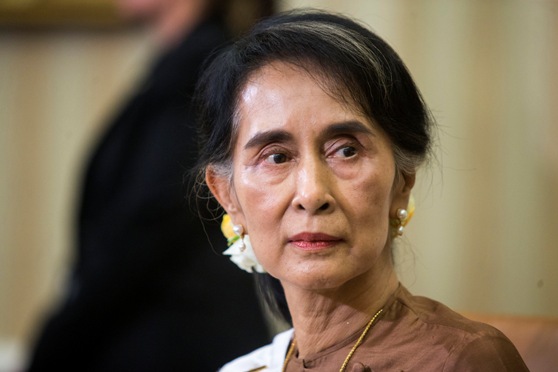Myanmar delays first verdict in Aung San Suu Kyi trial

By Sui Lee Wee
YANGON – A judge in Myanmar on Tuesday (30) delayed the announcement of a highly anticipated verdict against the country’s ousted civilian leader, Aung San Suu Kyi, who is facing a series of rulings that could keep her locked up for the rest of her life.
The 76-year-old, who was detained in a military coup in February, is facing 11 other charges and a maximum imprisonment of 102 years. Her trials have been held in closed-door hearings in Naypyitaw, the capital of Myanmar. The junta has barred all five of her lawyers from speaking to the media, saying their communications could “destabilize the country”.
The court was expected to deliver the first verdict on inciting public unrest Tuesday but the judge adjourned the case until next month, according to a source familiar with the proceedings. It was unclear why the judge announced the delay.
Suu Kyi is a flawed hero for a troubled nation.
She is held up as an almost godlike figure among her supporters in Myanmar, who describe her as a defender of the country’s democracy, for which she won a Nobel Peace Prize. But her reputation on the international stage was tarnished over her complicity in the military’s mass atrocities against the Rohingya.
The ruling Tuesday on the charge of inciting public unrest was expected to come a year after Suu Kyi led her party to a landslide election victory, trouncing the military-backed opposition party.
A guilty verdict would likely galvanize a protest movement that has spurred thousands of people to take up arms against the army since February when the generals seized power. The United Nations and foreign governments have described the trials as politically motivated.
In the months since the coup, people have gathered in the streets, doctors and nurses have stopped work in protest, and many have refused to pay taxes in a campaign known as the Civil Disobedience Movement.
Despite the threat of arrest, there is still widespread support for the movement. A growing number of soldiers are defecting, teaming up with armed protesters and insurgent groups to launch hit-and-run attacks against the military. The junta has responded by cracking down — it has killed 1,297 people and arrested more than 10,500 others, according to the Assistance Association for Political Prisoners (Burma), a human rights organization based in Thailand.
The National Unity Government, a group of deposed civilian leaders, said last week that it raised $6.3 million from people who bought “bonds” to fund its revolution. For many of her supporters, Suu Kyi was seen as the only politician who could lead Myanmar toward full democracy. The country had been ruled by the military for half a century since 1962. After Suu Kyi was elected in 2015, she was forced to share power with the army, which appointed 25% of parliament.
She has not been seen in public or been able to speak to anyone beside her lawyers since she was detained on Feb. 1. Just hours before she and her colleagues from the National League of Democracy Party were to take their seats in parliament, military officers detained them, accusing them of voter fraud. Suu Kyi has denied the charge.
Rights activists have condemned the charge of incitement, saying it is used to intimidate critics of the military. It carries a maximum sentence of three years and states that anyone who “publishes or circulates any statement, rumour or report” with “intent to cause, or which is likely to cause, fear or alarm to the public” could be found liable.
Prosecutors have continued to slap more charges on Suu Kyi as her case proceeded. The verdict Tuesday is the first of several that are expected to be announced in the coming months.
-New York Times

